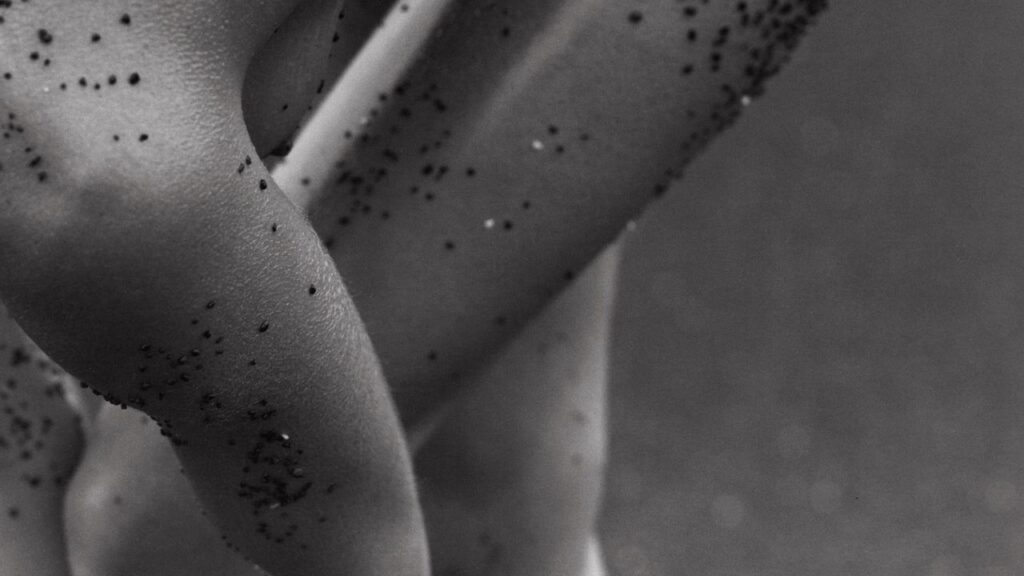The British summer often teases with the promise of warmth and sunshine, yet many find it to be a letdown. This past summer was no exception; it was notably cold, marked as the chilliest since 2015. While others may have lamented the gloomy weather, for me, it was a bittersweet relief. The dreary days offered an escape from the relentless pressure to dress in lighter attire. Instead, I could revel in my long sleeves and loose-fitting clothes without facing the inevitable questions about my warmth or comfort. My priority became to shield my skin, embracing every inch of coverage and seeking safety from unwanted scrutiny about my appearance.
It was during the drab days of mid-July, shortly after returning from a sun-soaked holiday in Greece, that I noticed something concerning on my arm. Small, raised red spots had begun to appear, reminiscent of past experiences that I had tried to forget. Panic gripped me as memories resurfaced of a similar condition I had faced in my twenties. Back then, my attempt to seek answers from a well-meaning but ineffective doctor led to a diagnosis of guttate psoriasis—a variant of a chronic skin condition that causes skin cells to excessively produce, resulting in scaly patches. This diagnosis marked the beginning of a long and often frustrating journey, bringing with it a complicated mix of emotions and physical challenges.
Guttate psoriasis is no small matter; it affects millions across the globe, often triggered by factors like illness or stress. I had just battled tonsillitis, and the flare-up arrived as an unwelcome reminder of my vulnerability. The lesions are most commonly found on the trunk, arms, and legs, but they can emerge anywhere on the body, adding another layer of anxiety for those affected. Unfortunately, there is no ultimate remedy for this condition, only management strategies that provide minimal relief. The unpredictable nature of flare-ups becomes a source of concern; they can linger for weeks or months, with the threat of re-emergence always looming in the background.
John Updike aptly described the struggle of living with psoriasis in his 1985 essay, highlighting the sun as the only true source of relief for this condition. Its UVB rays can momentarily pacify the skin’s abnormal cell production. However, living in the UK makes accessing that golden remedy a challenge. The fragmented sunlight does little to combat the discomfort, leaving me to grapple with the less effective treatments available. Many topical options come packaged in cumbersome containers and require time and effort to apply. The labor involved in managing my condition often heightens feelings of frustration, reminding me that the reality of this skin condition is about more than just physical symptoms.
When it comes to psoriasis, a cloud of shame often lingers. The societal expectations surrounding appearance can amplify feelings of inadequacy, especially when the skin is visibly impacted. The greasy creams and tar-infused treatments come with their own set of stigmas, often leaving behind unpleasant odors that only add to the anxiety. I resonate deeply with Updike’s words reflecting the inherent shame tied to living with visible skin conditions, as it creates an almost isolating experience. These feelings resonate intimately; the struggle is not only with the body but also with how it is perceived and judged by others.
In this complicated interplay between body and self-image, the quest for acceptance becomes paramount. The summer sun, often seen as a source of joy, turns into a symbol of vulnerability. Despite the disappointment of the weather, I find a certain comfort in the cooler days. They offer me a reprieve from expectations, allowing me to embrace my own form of self-acceptance. As I navigate through these emotional and physical battles, I realize that while the British summer may be cruel, it also offers a lesson in being kinder to ourselves. Understanding our struggles and accepting our bodies as they are can transform the narrative, turning shame into resilience and fostering a sense of peace amid the chaos.

